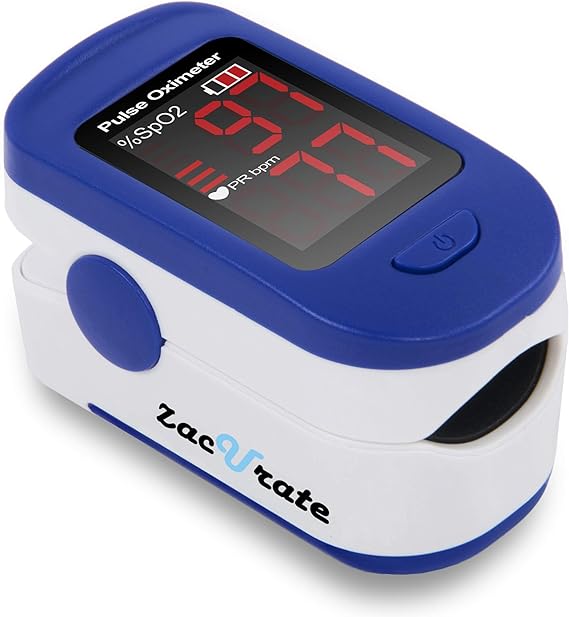Introduction to E.Coli and Its Impact
Escherichia coli, commonly known as E. coli, is a bacterium that naturally resides in the intestines of humans and animals. While most strains of E. coli are harmless and play a crucial role in maintaining a healthy gut, certain pathogenic strains can cause significant health issues. Among these pathogenic strains, E. coli O157:H7 is particularly notorious for causing severe foodborne illnesses. Infection with this strain can lead to symptoms such as severe stomach cramps, diarrhea (often bloody), and vomiting. It is essential to recognize these symptoms early to prevent complications.
E. coli infections can have a profound impact on public health. Outbreaks often lead to widespread concern due to the bacterium’s ability to spread rapidly through contaminated food and water. The healthcare system faces considerable strain during such outbreaks, as the demand for medical care increases significantly. Prompt diagnosis and treatment are crucial in managing E. coli infections. Early intervention can prevent the development of severe complications, such as hemolytic uremic syndrome (HUS), which can result in kidney failure.
The economic implications of E. coli outbreaks are also noteworthy. The cost associated with medical treatment, lost productivity, and food recalls can be substantial. Moreover, public trust in food safety can erode, leading to long-term repercussions for the food industry. Therefore, understanding the nature of E. coli and its potential impact is vital for both public health and economic stability. Efforts to improve food safety practices and public awareness are essential in mitigating the risks associated with E. coli outbreaks.
Details of the Current Outbreak
The recent E. coli outbreak in the UK has garnered significant attention due to its widespread impact and severity. The outbreak was first detected in early September 2023, when a cluster of cases was reported in the Midlands region. Over the following weeks, the outbreak expanded, affecting other areas including Greater London, the Northwest, and parts of Scotland. As of the latest reports, there have been over 150 confirmed cases, with the number continuing to rise as investigations proceed.
Tragically, the outbreak has resulted in several fatalities, with the current death toll standing at five. The demographic details of those affected reveal a concerning trend: the majority of cases have been reported among children under the age of ten and elderly individuals over sixty-five, both of whom are particularly vulnerable to severe complications from E. coli infections. The symptoms range from mild gastrointestinal distress to severe, life-threatening complications such as hemolytic uremic syndrome (HUS).
Preliminary investigations by public health authorities suggest that the source of the outbreak is likely contaminated food products. Early evidence points towards a batch of undercooked ground beef distributed to several supermarket chains and restaurants. However, other potential sources, such as contaminated water supplies and fresh produce, are also being rigorously examined. The Food Standards Agency (FSA) and Public Health England (PHE) are leading the investigations, collaborating with local health departments and food safety agencies to trace the contamination pathway and prevent further spread.
In response to the outbreak, several public health advisories have been issued. These advisories recommend that individuals practice stringent hygiene measures, including thorough handwashing and proper food handling procedures. Additionally, specific warnings have been directed at vulnerable populations, advising them to avoid consuming raw or undercooked meat and to ensure all produce is washed thoroughly before consumption. Public health officials continue to update the public regularly as new information emerges, urging vigilance and compliance with recommended safety measures.
Response and Measures Taken by Authorities
In response to the recent E. coli outbreak in the UK, health authorities have implemented a comprehensive set of actions to identify and contain the source of the infection. The initial step involved a thorough investigation to pinpoint the origin of the outbreak. This included extensive food recalls of suspected contaminated products, which were swiftly removed from shelves to prevent further consumption. Restaurants and food establishments identified as potential sources were temporarily closed for inspection and sanitation.
Concurrently, water testing was conducted in affected areas to ensure the safety of the public water supply. This preventive measure aimed to rule out waterborne transmission of E. coli. The Food Standards Agency (FSA) played a crucial role in coordinating these efforts, working in tandem with local health departments and environmental health officers to enforce compliance and ensure public safety.
Public health campaigns were launched to educate the public on preventive measures. These campaigns emphasized the importance of proper handwashing, especially before meals and after using the restroom. They also provided guidelines on safe food handling practices, such as cooking meat thoroughly and avoiding cross-contamination between raw and cooked foods. Informational materials were distributed through various media channels, including social media, to reach a broad audience.
Healthcare providers were pivotal in managing the outbreak. Medical professionals were equipped with updated diagnostic procedures to identify E. coli infections promptly. Treatment protocols were established, focusing on supportive care and, in severe cases, administering antibiotics under strict medical supervision. To enhance tracking and reporting, healthcare facilities collaborated with public health authorities to monitor new cases, facilitating a coordinated response.
Overall, the multi-faceted approach by UK health authorities and relevant organizations has been instrumental in mitigating the impact of the E. coli outbreak. The authorities have taken significant steps to safeguard public health and prevent future occurrences by combining rigorous containment measures, public education, and effective healthcare management.
Preventive Measures and Future Outlook
Preventing E. coli infections requires a combination of personal hygiene, food safety practices, and proactive measures by food producers and suppliers. Individuals can significantly reduce their risk by adhering to a few essential guidelines.
Firstly, thorough cooking of meats, especially ground beef, is crucial. E. coli bacteria are often found in raw or undercooked meats; ensuring that the internal temperature reaches 160°F (71°C) can effectively kill these pathogens. Additionally, avoiding the consumption of raw milk and products made from unpasteurized milk is vital, as these can be sources of E. coli contamination.
Washing fruits and vegetables under running water before consumption is another essential step. Even produce that will be peeled should be washed to prevent the transfer of bacteria from the surface to the edible parts. Using separate cutting boards for raw meats and other foods can further minimize cross-contamination.
Personal hygiene, particularly handwashing, plays a significant role in preventing the spread of E. coli. Hands should be washed thoroughly with soap and water after using the bathroom, changing diapers, and before eating or preparing food. This simple yet effective practice can drastically reduce the transmission of bacteria.
Food producers and suppliers also have a critical role in ensuring food safety. Implementing stringent hygiene and sanitation protocols in food processing and handling facilities can help prevent contamination. Regular inspections and adherence to food safety regulations are essential in maintaining high standards. Moreover, adopting advanced technologies for detecting E. coli in food products can enhance early identification and containment of potential outbreaks.
Looking ahead, improvements in public health policies and outbreak management strategies are expected. Enhanced surveillance systems and rapid response mechanisms can lead to quicker identification and control of E. coli outbreaks. Public education campaigns on food safety and hygiene practices can also contribute to long-term prevention efforts. By combining individual actions with collective measures, the risk of E. coli infections can be effectively managed and reduced.
Read More
Video Industry Prospecting Connect Imagine 1920×1080 15 (youtube.com)
Skyscanner – Car Hire V3 Coils – RTB 6s (youtube.com)
Your food could kill you!: deadly E.coli outbreak found in popular UK food item (youtube.com)
Written by CHARM-retirement.com
Jun-2024
Written by CHARM-retirement.com
This post may contain affiliate links, meaning I get a commission if you decide to purchase through my links, at no cost to you.




















